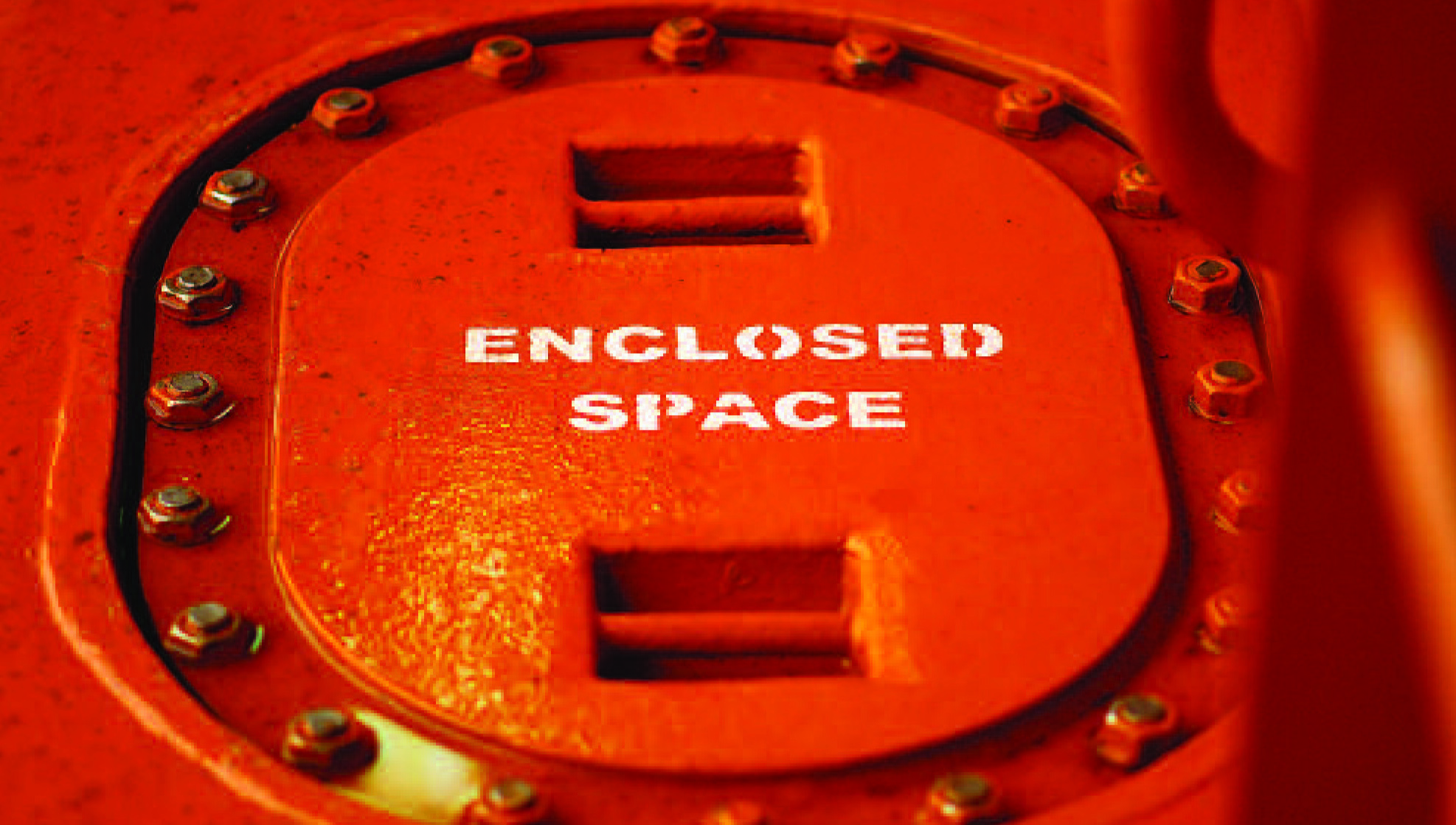
Training programmes seeking to cut the continued high rate of casualties in enclosed spaces onboard ships are falling woefully short, accident investigators have warned.
Following an analysis of incidents on ships under its flag, the Marshall Islands register is being urged to secure improvements in the International Maritime Organization (IMO) rules governing enclosed space entry and rescue drills.
'Despite new regulations and increased focus, lives continue to be lost at sea due to improper enclosed space entry and rescue,' the registry warns. 'To break this trend, decisive and immediate actions are needed by owners, managers, seafarers and other stakeholders in the maritime industry.'
Last year, two seafarers died and two suffered serious injuries as a result of enclosed space incidents on Marshall Islands-flagged ships. Investigations showed that, in most cases, the seafarers involved had taken part in drills required by the IMO SOLAS Convention which shows that the training is failing to achieve its goal, the flag state said.
'Many times, the enclosed space entry and rescue drills held onboard use scenarios that are not realistic in nature nor relatable to a seafarer's normal tasks. This can create a perception that enclosed space entry is unusual or exceptional in nature and not something that is often encountered onboard.
'This can also inadvertently create a sense of "this will not happen to me", which is extremely dangerous given the frequency of enclosed space entry.'
The report stresses the fundamental need for seafarers to recognise what constitutes enclosed spaces on their ships, and it calls for managers to ensure that seafarers undergo frequent training to identify them.
Clear markings with appropriate warning signs are also recommended to improve awareness and to ensure that seafarers understand the risks as well as the precautions to take prior to entry.
Most enclosed space deaths involve 'inappropriate' rescue attempts made in haste and without the use of personal protective equipment. There is a continual need to address the natural desire of seafarers to help a shipmate in trouble, and training needs to underline the importance of teamwork during rescues.
'All crew members must be aware that the failure to follow enclosed space rescue procedures not only threatens their lives, it also reduces the chances of a successful rescue,' the report points out. 'Incidents where would-be rescuers became victims have significantly delayed rescue operations.'
Investigators recommended that the Marshall islands registry should consider submitting a proposal to amend the IMO rules governing entry into enclosed spaces aboard ships – to ensure that seafarers are taught that the best way to help a shipmate in trouble is to raise the alarm to enable an organised rescue to be carried out in line with the correct procedures.
The report also expresses concern that 67% of groundings and collisions involving Marshall Islands-flagged ships last year occurred on ships with a pilot onboard at the time. It warns masters that they remain in command of the ship and should guard against the 'improper delegation of responsibility for navigation decision-making to the pilot'.
Tags
